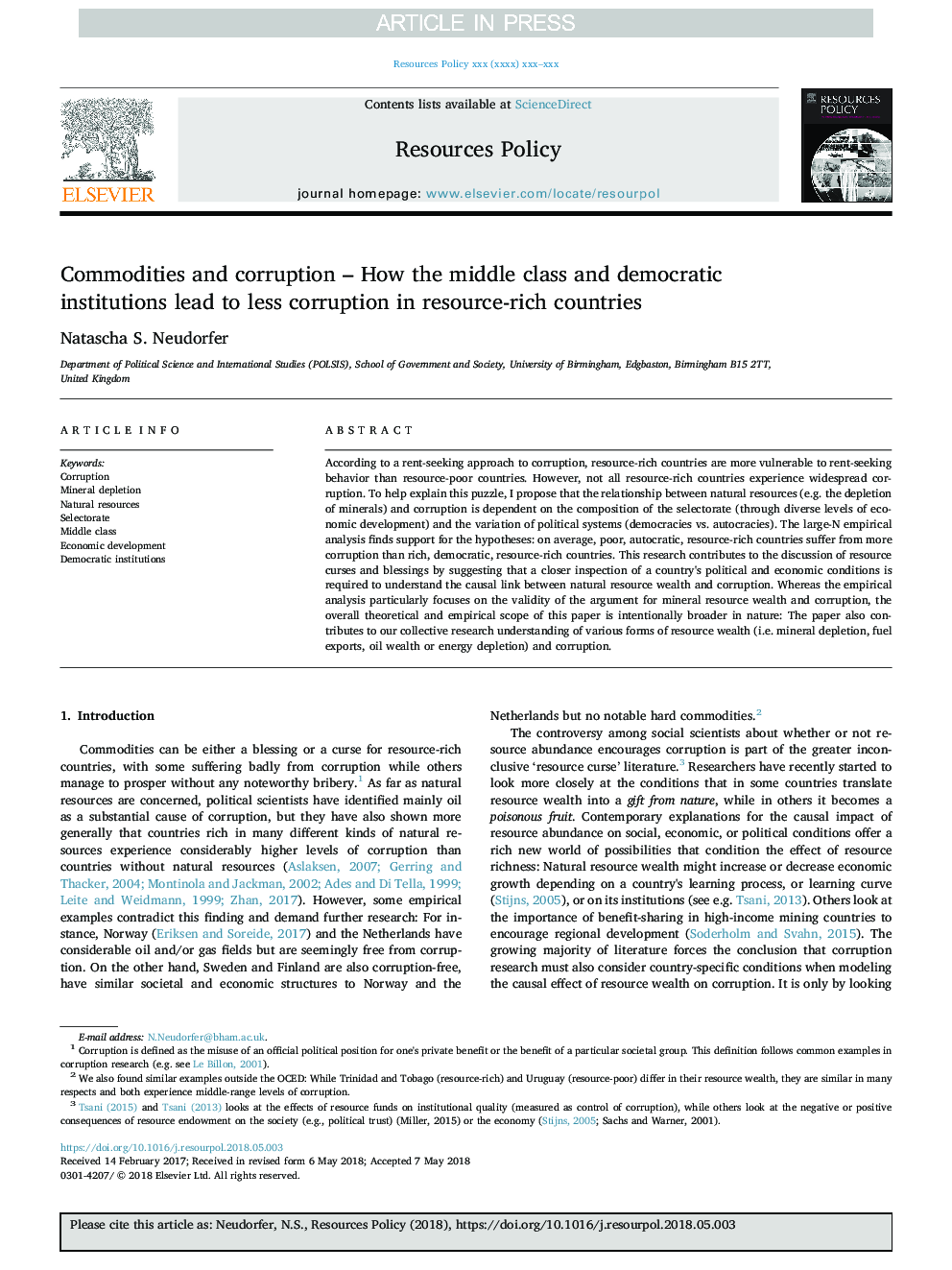| کد مقاله | کد نشریه | سال انتشار | مقاله انگلیسی | نسخه تمام متن |
|---|---|---|---|---|
| 10153789 | 1666228 | 2018 | 17 صفحه PDF | دانلود رایگان |
عنوان انگلیسی مقاله ISI
Commodities and corruption - How the middle class and democratic institutions lead to less corruption in resource-rich countries
ترجمه فارسی عنوان
کالاها و فساد - چگونه طبقه متوسط و نهادهای دموکراتیک منجر به فساد کمتری در کشورهای غنی از منابع می شود
دانلود مقاله + سفارش ترجمه
دانلود مقاله ISI انگلیسی
رایگان برای ایرانیان
کلمات کلیدی
فساد، فرآوری مواد معدنی، منابع طبیعی، انتخاب کنید طبقه متوسط، توسعه اقتصادی، نهادهای دموکراتیک،
موضوعات مرتبط
مهندسی و علوم پایه
علوم زمین و سیارات
زمین شناسی اقتصادی
چکیده انگلیسی
According to a rent-seeking approach to corruption, resource-rich countries are more vulnerable to rent-seeking behavior than resource-poor countries. However, not all resource-rich countries experience widespread corruption. To help explain this puzzle, I propose that the relationship between natural resources (e.g. the depletion of minerals) and corruption is dependent on the composition of the selectorate (through diverse levels of economic development) and the variation of political systems (democracies vs. autocracies). The large-N empirical analysis finds support for the hypotheses: on average, poor, autocratic, resource-rich countries suffer from more corruption than rich, democratic, resource-rich countries. This research contributes to the discussion of resource curses and blessings by suggesting that a closer inspection of a country's political and economic conditions is required to understand the causal link between natural resource wealth and corruption. Whereas the empirical analysis particularly focuses on the validity of the argument for mineral resource wealth and corruption, the overall theoretical and empirical scope of this paper is intentionally broader in nature: The paper also contributes to our collective research understanding of various forms of resource wealth (i.e. mineral depletion, fuel exports, oil wealth or energy depletion) and corruption.
ناشر
Database: Elsevier - ScienceDirect (ساینس دایرکت)
Journal: Resources Policy - Volume 58, October 2018, Pages 175-191
Journal: Resources Policy - Volume 58, October 2018, Pages 175-191
نویسندگان
Natascha S. Neudorfer,
